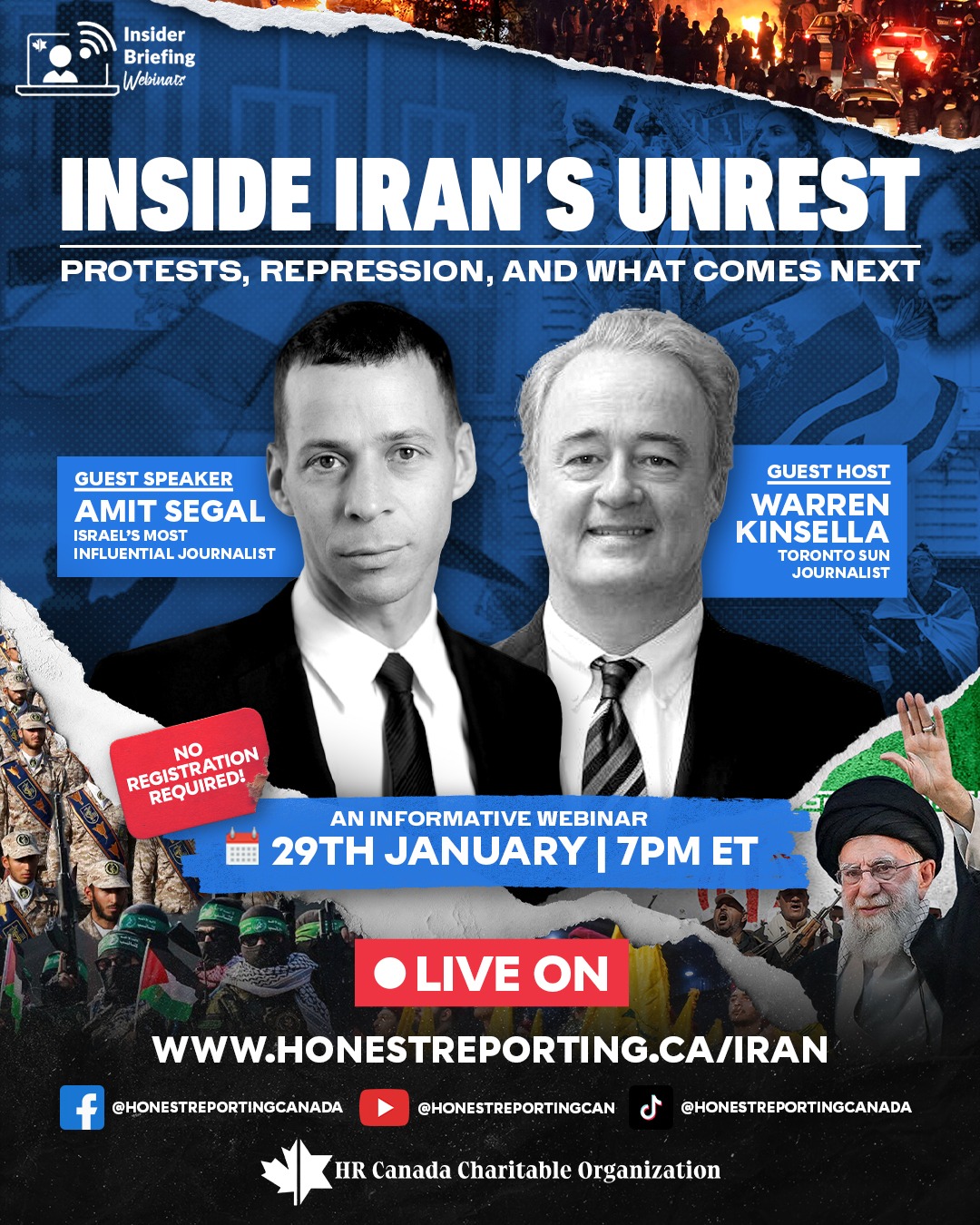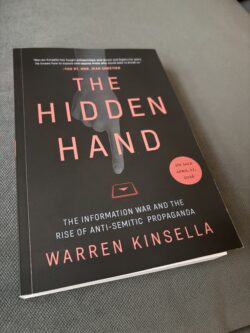What next for Iran? The Amit Segal interview
Amit Segal is one of the most influential journalists in Israel and the Middle East. He has sources at the highest level of governments and intelligence agencies. He writes a column for the Wall Street Journal and is a best-selling author.
And, his sources say, 30,000 Iranians were slaughtered over a 36-hour period between January 8 and 10, 2026. By their own government. That’s nearly 1,000 people murdered every hour.
“That makes it not just the deadliest period in Iranian history,” Segal said in an Honest reporting-sponsored interview this week. “It’s the deadliest period since the Holocaust. There has never been a single event in which this number of casualties was recorded since World War Two.”
The protests against Iran’s Supreme Leader Ali Khamenei and his repressive Islamic Revolutionary Guard Corps (IRGC) have been raging for weeks, but they have attracted precious little attention in the West. Part of the reason for that has been a near-total Internet blackout imposed by Khamenei and the IRGC – a “digital darkness,” Segal says – and the fact that journalists there face imprisonment or death.
But information is seeping out, and much of it is being collected by Israel’s powerful intelligence agencies. Those agencies then pass along some of what they know to Amit Segal, who they trust.
Among the revelations Segal shared in our interview:
The Ayatollahs’ Regime is Collapsing. Iran was once on the verge of becoming a regional superpower, Segal says, but not now. The Islamic regime’s leaders simply don’t have enough resources to run the country – food, electricity, water and gasoline. “From what I hear in the Israeli security establishment, they believe that [the Iranian] regime is finished,” Segal says. “But it takes time in Iran. It took 11 months for [Ayatollah Ruhollah] Khomeini to actually become the Supreme Leader of Iran. We might expect [regime change] that is measured by months, rather than days or weeks.”
The Israelis and the Americans are ready to strike. The U.S.S. Abraham Lincoln aircraft carrier arrived in the Middle East this week, and would lead any American military intervention in Iran. A carrier “strike group” can include guided missile cruisers, anti-aircraft warships and anti-submarine destroyers – and more than 5,000 U.S. troops have been moved to the region, as well. “I don’t know if any attack is imminent,” Segal says. “But I know one thing for sure: there enough offensive facilities in the Middle East to attack Iran. However, there still aren’t enough defensive forces.”
[To read more, subscribe here]







